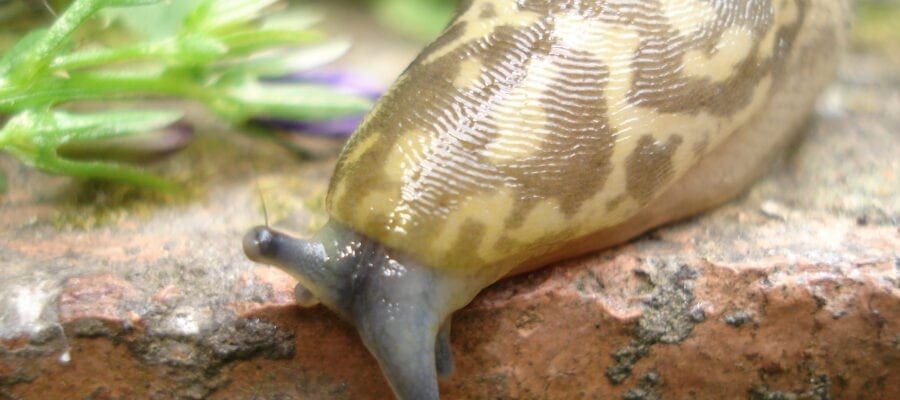Findings from the first year of an RHS study reveal that organic slug pellets perform just as well as synthetic ones.
Interim results from the two-year study to identify more effective slug and snail controls show that organic pellets performed almost as well as the market-leading non-organic equivalent across a range of plants – and on hostas, they did better.
The six strategies being tested are:
- No treatment
- Cultural management (mulch)
- Mulch plus synthetic (metaldehyde) pellets
- Mulch plus organic (ferric phosphate) pellets
- Mulch plus nematode biological control applied reactively
- Mulch plus nematode biological control applied preventatively
Other initial findings were that mulch alone performed least well across the range of plants studied – daffodils, hostas, lettuces and beans – and that when used preventatively, nematodes provided good levels of control for daffodils and intermediate control for lettuces. However, they were less effective on hostas and beans.
Lead RHS scientist Dr Hayley Jones says, “The high levels of slug and snail damage found on the plants protected by mulch was unexpected, especially as many mulches are billed as being repellent to slugs and snails. It is possible that the negative impact of the mulch affected the effectiveness of the other control treatments when they were combined.
“In the second year of the study we will try to answer some of the questions generated by these results. We will look at the treatments with and without mulch, so we can better understand how the mulch interacts with the pesticides and nematodes.”
Find out more at: https://www.rhs.org.uk/science/science-blogs/science/June-2017/slug-pellet-trial





